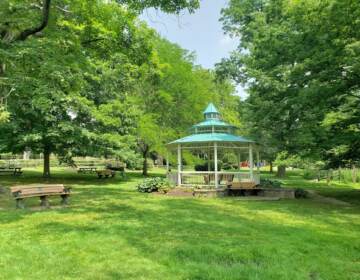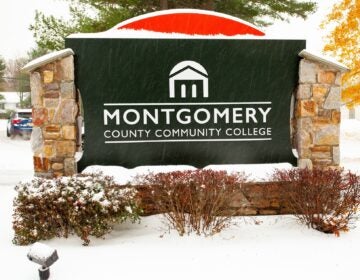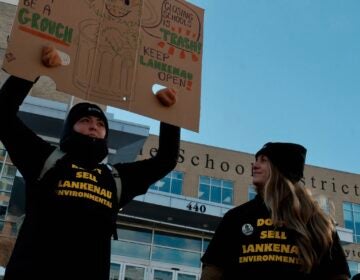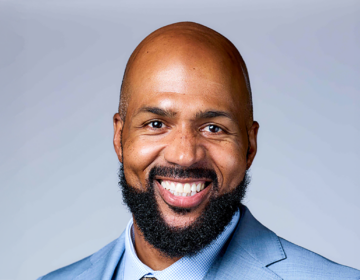For Sexual Assault Awareness month, Montgomery County kids are learning about consent
The Victim Services Center of Montgomery County is visiting libraries and schools to teach children about consent, personal boundaries, and body safety.
Listen 1:33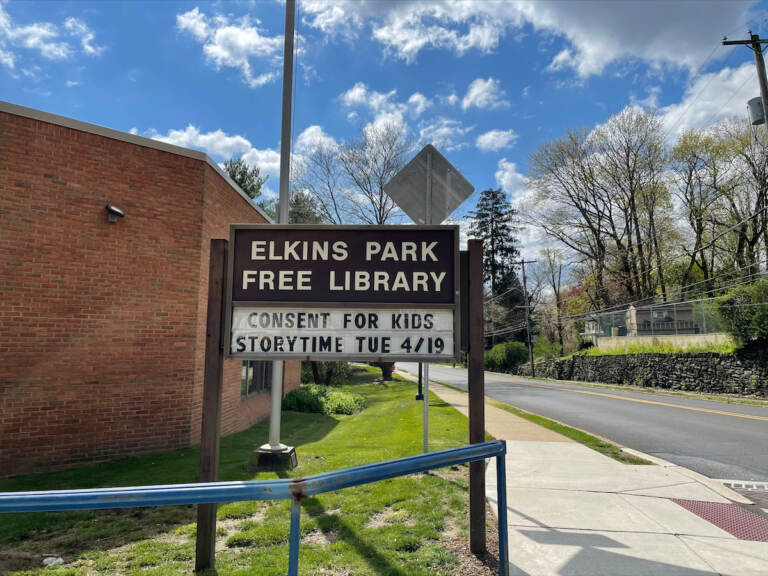
Elkins Park Free Library ''Consent for Kids'' sign (Photo courtesy of Victim Services Center of Montgomery County)
Got a question about life in Philly’s suburbs? Our suburban reporters want to hear from you! Ask us a question or send an idea for a story you think we should cover.
The Victim Services Center of Montgomery County is visiting libraries and schools to teach children about consent, personal boundaries, and body safety.
On Tuesday morning, VSC led a “Consent for Kids” workshop at the Elkins Park Free Library for children ages 3 to 5.
“We sincerely believe that children are little people. They’re not becoming people, they are people and they deserve to have their boundaries respected,” said Molly Lloyd, Prevention Education Specialists with VSC.
Lloyd began the workshop by defining what it means to be comfortable. “When you’re comfortable, you feel good, you feel safe, and we feel happy,” Lloyd said.
Then they defined “consent,” in simple, plain language.
“Consent is kind of like permission or asking,” Lloyd said. “You let people do things, people let you do things.”
Kiley Addis, co-facilitator of the workshop and Prevention Education Specialist with VSC, said starting the conversation around consent early-on can have life-long positive impacts on children.
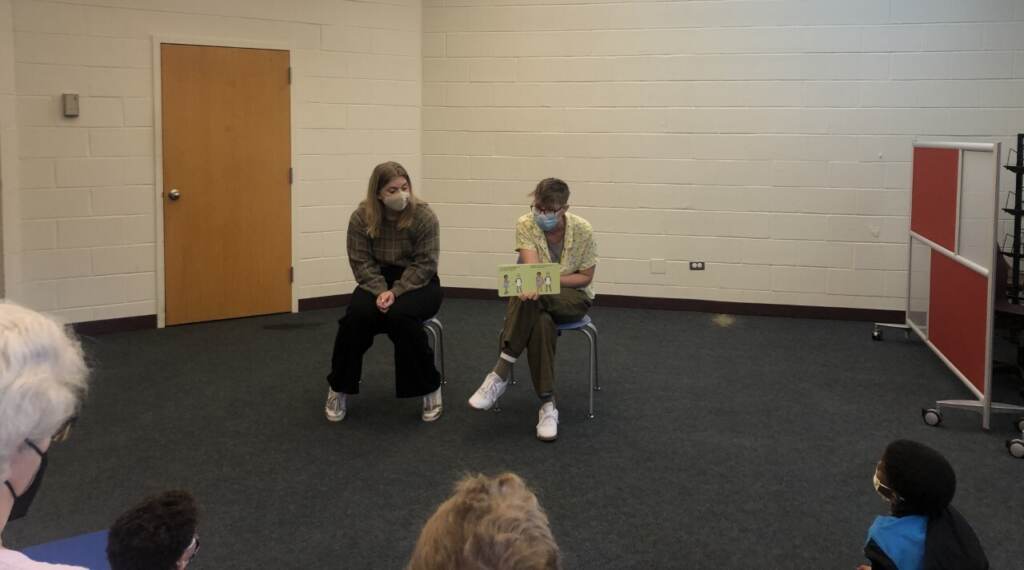
According to a 2011 review by the National Sexual Violence Resource Center, more than one in four adolescents had been sexually victimized during their lifetimes. According to the Centers for Disease Control, self-report data suggests that at least 1 in 7 children have experienced child abuse and/or neglect in the last year.
Together Addis and Lloyd explained the childrens’ right to say “No,” to different forms of touch.
“Your body belongs to you,” Lloyd said. “If you don’t want to hug someone or you don’t want to give them a kiss, even if you love that person, you don’t have to give them one.”
Lloyd and Addis then read from the book, “C is for Consent” to show scenarios and initiate dialogue on the topic.
For example, the book’s main character, Finn, is asked for a kiss by his grandparents.
Lloyd suggested that children can use body language to say “No.”
“You can walk away from that person or you can turn away. Our bodies can speak sometimes too,” they said.
After the workshop, parents and caregivers expressed gratitude for the lesson.
Tasneem Ope, a parent from Elkins Park, said it’s important for caregivers to get exposure to these lessons and not just have them in schools.
“So they can learn those lessons and have an understanding of how to teach them to young children,” Ope said. “And some adults need to implement them in their own lives.”
Ope’s son, Bilal, 4, said he learned “to ask before you touch someone.”
Selma Roffman, from Elkins Park, was at the workshop with her 9-year-old grandson and 6-year-old granddaughter.
Roffman said she’s in the midst of applying these lessons to her relationship with her grandson. But it can be difficult.
“I like to put my arms around people. I like to show them I care in that way,” Roffman said.
“And yet, one of my grandchildren lets me know they don’t enjoy being touched … and that’s important for me and relating to that child so they’re comfortable with me.”
These lessons can eventually help prevent victim blaming, said Addis, especially when paired with comprehensive sex education.
Teaching about consent and sexual assault together, said Addis, “takes that culture away from, ‘the blame is on you,’ to, ‘how can we be better humans in whole.’”
According to the CDC, changing the social norms that accept or are indifferent to violence is important to the prevention of child abuse and neglect. That involves reframing the way people think and talk about child abuse.
Teaching boundaries, teaching empathy
Conversations on consent are not just for sexual or romantic relationships, though, Lloyd said.
Boundaries can exist in all kinds of relationships, ”whether they’re physical, emotional or mental,” they said.
Addis explained that these lessons can teach larger ideas around empathy and respect for other humans.
“A lot of the times when people think about the education we’re giving, they’re so focused on this idea of sex and sex education. But no, it’s about teaching them how to be kind to one another in general and how to have empathy for each other,” Addis said.
Jessica Carson, community education programs supervisor for VSC, said it’s important for these conversations to be held in community spaces like libraries, to help normalize the topic, to show “that it doesn’t have to be scary.”
Carson said teaching these topics should not be unlike teaching about other child safety issues, like safe sleep, breastfeeding, or child passenger safety.
“We need to have safety conversations about our bodies and how we need to respect other people’s feelings and their bodies and their boundaries,” Carson said.
Carson said these topics can be challenging for parents to discuss with their kids. So, she has some tips for those looking to try it out.
For example, model consent behavior with other adults and with kids. If your child says no to a hug or a kiss, said Addis, don’t make them feel guilty about it, just say “OK.”
Carson also suggested some ways to tell family members and friends that you are teaching your child about boundaries.
“So when you ask my child for a hug, it’s important to accept their answer and not make the child feel guilty or embarrassed or ashamed for saying no because it teaches them that they should please others and ignore their own feelings of safety,” Carson said.
For children who have trouble saying no, Carson said it’s important for parents to have open and honest conversations with them, and validate those feelings.
“Ask them questions about where that feeling is coming from and have them unpack that and clarify their concerns,” Carson said.
Remind them that people will still love them and be their friend if they say no to touch, said Carson.
For parents who believe these conversations are starting too early, Carson said, “they’re already going to observe and be exposed and taught these different social rules about relationships and language around that. So why not give them education so they feel empowered.”
VSC is holding another Consent for Kids workshop on May 6 at the William Jeanes Memorial Library.
WHYY is your source for fact-based, in-depth journalism and information. As a nonprofit organization, we rely on financial support from readers like you. Please give today.



